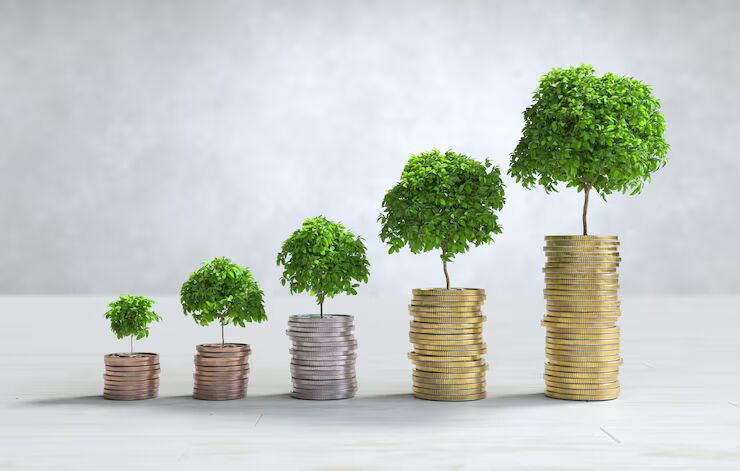The Future Of Danish Business: Digitalization, Sustainability, And Entrepreneurial Support
.jpg)
.jpg)
As Denmark enters 2025, its business landscape is undergoing significant transformation shaped by three central forces: digitalization, sustainability, and a renewed emphasis on entrepreneurship. Known for its strong welfare model and stable economy, Denmark has consistently ranked among the most competitive countries in the European Union. Yet in the face of global challenges such as technological disruption, climate change, and shifting market dynamics, Danish businesses are adapting rapidly. The country’s future depends on how well it integrates these trends into a balanced approach that fosters innovation, protects the environment, and nurtures the next generation of entrepreneurs.
Digitalization has emerged as a cornerstone of Denmark’s future economic strategy. With one of the highest rates of internet penetration in the world and a population well-versed in digital tools, the country has built a foundation for technological advancement that few can rival. In 2025, businesses are increasingly reliant on artificial intelligence, data-driven decision-making, and automation to boost efficiency and remain globally competitive. Danish companies are pioneering new approaches in fintech, e-commerce, and health technology, with digital platforms becoming essential for both large corporations and small businesses. The government’s commitment to a digital-first economy has supported this transition, offering policies that encourage innovation and investments in cybersecurity to ensure trust in digital systems.
At the same time, sustainability remains deeply rooted in Denmark’s economic and cultural fabric. Long recognized as a global leader in green energy, Denmark is home to some of the world’s most successful renewable energy companies, with wind and solar projects continuing to expand at an impressive pace. The government’s commitment to achieving climate neutrality by 2050 is shaping corporate strategies, pushing businesses to adopt cleaner technologies, reduce emissions, and embrace circular economy practices. Sustainability is not only a moral obligation but also a competitive advantage, with Danish companies exporting green solutions worldwide. This focus has made environmental responsibility a defining feature of Danish business identity, influencing consumer expectations and investment patterns.

While digitalization and sustainability represent structural forces shaping the economy, entrepreneurial support is the dynamic element that ensures ongoing renewal. Denmark has long encouraged innovation through public-private partnerships, educational reforms, and access to venture capital. In 2025, entrepreneurial ecosystems are thriving in cities like Copenhagen and Aarhus, where incubators, co-working spaces, and accelerators foster creativity and collaboration. Young entrepreneurs are increasingly attracted to fields such as climate technology, biotech, and digital services, supported by government grants and EU funding programs. The focus is not just on startups but also on ensuring that small and medium-sized enterprises can scale up and compete internationally, diversifying the economy beyond its established corporate giants.
One of the unique features of Denmark’s approach is the integration of these three forces into a cohesive strategy. Digital tools are being used to monitor and improve sustainability performance, while entrepreneurial ventures are often focused on green innovation and smart technology. The synergy between digitalization, sustainability, and entrepreneurship ensures that Denmark is not simply reacting to global trends but actively shaping them. This alignment has helped the country remain an attractive destination for international investors, who are drawn to Denmark’s mix of stability, innovation, and progressive values.

However, the future is not without challenges. The pace of technological change raises questions about data privacy, workforce adaptation, and ethical use of artificial intelligence. Sustainability goals, while ambitious, require continuous innovation to remain realistic and affordable, especially as global competition in green technology intensifies. For entrepreneurs, access to funding and international markets remains a hurdle, and there is ongoing debate about how to reduce bureaucratic barriers for small businesses. Balancing rapid innovation with inclusive growth will be the test of Denmark’s long-term strategy.
Looking forward, Denmark is well-positioned to navigate these challenges. The country’s culture of trust, high-quality education system, and openness to collaboration provide a solid base for future growth. Businesses that successfully integrate digital transformation with sustainable practices and entrepreneurial spirit will not only thrive domestically but also reinforce Denmark’s reputation as a global leader in progressive, forward-looking business models. The Danish approach emphasizes that economic success is not about choosing between profit and responsibility but about recognizing that the two can reinforce one another in a modern economy.
In conclusion, the future of Danish business rests on the ability to weave digitalization, sustainability, and entrepreneurial support into a shared vision of progress. Denmark’s path shows that competitiveness in the 21st century will not be measured solely by GDP but also by how effectively nations adapt to technological change, combat climate challenges, and empower their innovators. If Denmark continues on its current trajectory, it will remain not just a strong European economy but also a global example of how business can thrive by aligning growth with responsibility.
Film, TV, and entertainment industry news. Plus, every Friday, a special Awards Insider edition.
By signing up, you agree to our user agreement (including class action waiver and arbitration provisions), and acknowledge our privacy policy.

Denmark in 2025 stands as the EU’s most competitive business hub, driven by stability, innovation, sustainability, and a trust-based economy that attracts global investors.
By Emil Pedersen
Denmark’s 2025 economy shows strong growth and sustainability leadership, but faces challenges from market concentration risks that could impact long-term resilience.
By Emil Pedersen
Charter revamps cable bundles with streaming deals, prioritizing flexibility and affordability.
By Lars Nielsen
SiriusXM and Wondery secure top podcast deals to drive growth.
By Lars Nielsen
The biggest entertainment deals of 2024 and the power players behind them.
By Lars Nielsen
RedBird IMI acquires All3Media, expanding its global TV production empire.
By Lars Nielsen
As Disney dives into gaming with a $1.5 billion Epic Games play, Hollywood’s biggest studios are finally waking up to the power of video games as the ultimate IP gold mine.
By Lars Nielsen
Paris 2024 boosted On Location’s hospitality, driving Endeavor’s overall growth.
By Lars Nielsen